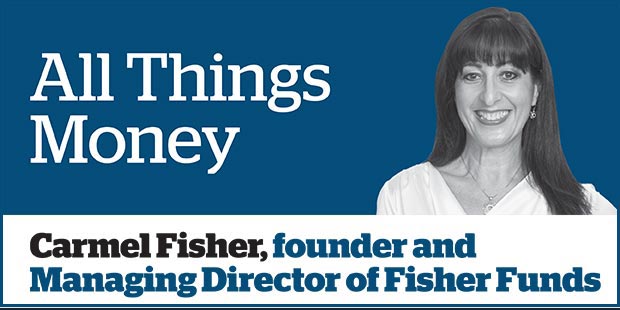I admit it. I have fallen in love with an investment before. I know I shouldn't have but I did, and I empathise with those who have suffered the same fate!
We all know that it's wrong to love inanimate things, like stocks, especially if it is unconditional love. That sort of love is supposed to be reserved for partners, family and, occasionally, our favourite sports team.
But I have found myself loving certain shares because they made me feel good (well, their performance did); we looked good together (buying them made me seem smart) and the more I got to know them, the more I liked them and the easier it became to overlook any flaws.
Falling in love with an investment can be dangerous because, just as in human relationships, emotion clouds our judgment and can lead to bad break-ups and broken hearts.
The love bias (my term) actually has a scientific name - the endowment effect. Back in the late 1970s economist Richard Thaler coined this phrase to describe an irrational tendency to overvalue (or love) something just because we own it.
Thaler demonstrated one scenario where a man owned a case of wine that he had bought for an average price of $35 a bottle. When he was offered $100 a bottle, he refused, even though he personally would never pay more than $35 for a bottle of wine.
In a second scenario, a man's neighbour offered to mow his lawn for $8. The man refused, even though he wouldn't mow his neighbour's same-sized lawn for less than $20.
Since these original scenarios, there have been numerous demonstrations of the endowment effect, often involving coffee mugs that people insist are worth more (once they own them) than the price they were prepared to pay moments before.
It is often seen in the property market when homeowners perceive a higher value in their property than others are prepared to pay because of the time and emotion the owner has invested in that home.
The endowment effect has some real implications for investors. Put simply, the tendency to love what we own applies to all sorts of financial assets - shares, bonds, funds, properties etc. When we become attached to our investments, we become more lenient in our thinking (a bit like overlooking the shortcomings of our loved ones). If the market tells us our investment is worth $4 we naturally assume it's worth more, even before we complete any analysis of its value.
It is in selling our assets or in a bear market that the endowment effect can hurt us. We don't sell when we should, and then we are left stuck with each other and miserable.
There are some techniques to overcome the love bias.
First, we can write down an objective list of the important characteristics of our investment - those characteristics that others also value, such as earnings; return on investment, and future growth prospects. Writing down objective characteristics only will avoid our falling in love with our investment's cute dimple!
We should mentally detach ourselves from our investment and imagine that we are hearing about it for the first time. If someone offered us this investment today, would we jump at the opportunity or is there something better we could put our money into?
We can try and replace emotion with rational thinking by considering all the reasons we shouldn't own the investment. If we can't do this on our own, ask others why they think we shouldn't own it. Some of their logic might resonate and prompt us to exit an unhealthy investment relationship.
Sometimes, even though our head says one thing, our heart might stop us from pulling the pin. In this case, we should try a measured and manageable exit from the relationship (the equivalent of a weekend away to see what freedom feels like). Selling small parcels of the investment might make it easier to ultimately sell the lot.
Love can last forever, but when it comes to investing the head must always rule the heart.

